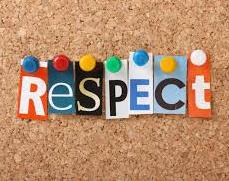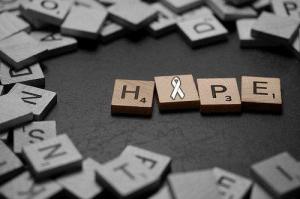


As a violence prevention educator I spend each and every day I work, which includes many evenings and weekends studying, attempting to dissect the roots of violence. The case of Jian Ghomeshi has given me much pause for reflection and contemplation. In a way his alleged violent actions have affirmed much of my own research and exploration of ideas about where violence comes from. The aftermath of the disclosures of women has included much public debate, from notable feminists, and other writers. Dr. Gabor Mate’s recent opinion piece in the Star hits the mark in many ways, but also begs a deeper gendered social analysis about the ways in which we learn culturally. It is both of these that I wish to explore, with all due respect, and take the analysis deeper.
Dr. Mate notes that we live in a misogynistic culture. This means that there is an ingrained hatred of women in our society. I feel appreciative of how Dr. Mate urges us not to cast all men in the dye of being “pigs”, noting though that aggression towards females is ingrained in the psyches of all but a few men. This is an astute analysis that I see playing out in my work with young men and women in circles where they learn healthy relationships in the context of men’s violence against women. In terms of listening, one of the hallmarks of a healthy relationship, many young men enter our circles and do not have the baseline level of respect to listen to and value what young women have to say. This is because they see women as second-rate citizens, because they have been taught to do this.
More than a “few” men exhibit extreme hostility and we must be clear about this. Twelve hundred missing aboriginal women indicates this; 90,000 women a year ending up in transition houses for battered women indicates this; countless children (girls and boys) molested by men indicates this; one in three women reporting rape in her lifetime in Canada is hardly just a few men acting out violence. 19% of boys being sexually abused by a man by the time they are 18 in the province of BC is hardly a few men with dysfunction. This is an epidemic, and perhaps the most serious public health issue of our times, with historical roots going deep into colonial paradigms, and indeed family of origin pieces, which have long histories. I am speaking about how violence is passed down from generation to generation. Objectification of women that dehumanizes an entire gender is a root cause of much of the violence in our world. It also prevents men from standing in their truest human dignity.
In this way, violence is socially learned. The work of Canadian psychiatrist Alberta Bandura established that we learn violence socially. This can include from family members, friends, media, including television, movies, music, magazines, video games, and pornography. Having recently written curricula focusing on Internet Safety for youth, specifically examining and discussing pornography with youth, I can attest to the harmful nature of violence against women displayed in pornography, which youth have virtually unfettered and free access to. As my brilliant colleague Christina Antonick notes, the liberation of men is intimately tied to the liberation of women. I appreciated how Dr. Mate provided us with an honest, vulnerable and real account of his own perpetuation of violence. It is a powerful tool that males must embrace, particularly males in position of power and influence who work with young men, because it takes away the shame, which is at the root of male defensiveness in discussing violence against women. Any analysis of male violence is incomplete without examining the forces infiltrating our own lives through social learning.
It is possible that if a child’s needs are not met that they could have an internalized aggression towards women. However this argument in a way, places the blame back on the shoulders of women for men’s behaviour, though Dr. Mate acknowledges that it is a virtually impossible task for women, especially single women to achieve on their own. Furthermore, if men are being raised in a culture that is not teaching them to be emotive, and in fact encourages the opposite, is it any wonder that men have no capacity to understand their true feelings that reside beneath anger? Additionally, a child could not have needs met, grow up with abuse and violence, and still have positive influences that promote feminism, equality, social justice, and healthy relationships. The child that has adults who nurture emotional intelligence, empathy, compassion and the desire for healthy relationships is the child who will not only survive but thrive.
Jian Ghomeshi did not awaken us to this conversation. It’s been happening for decades. He may have re-awakened the need nationally, but this is not new. The brutal slaying of 14 women by Mark Lepine sparked national debate 25 years ago. That debate has continued thanks to the hard work of feminists, exemplified in the White Ribbon Campaign. It is indeed an unfinished and growing conversation. Feminism, which sought to criminalize domestic violence, and give women the right to choose (and vote), created the conversation about misogyny.
Jian Ghomeshi has done us no favours. Let’s be clear, we all wish this wasn’t happening. What we thought was a good man has fallen from grace, and in a time when we desperately need great men, this is a setback. Every year though there are tragedies of misogynistic violence involving teenage girls, ranging from Amanda Todd to Rehteah Parsons, in Canada alone. Every year millions of women are trafficked the globe over, including in Canada. Children go missing never to be seen again. Jian Ghomeshi’s alleged violence is of course deplorable, but it is only notable because it is in stark contrast to his on air persona, and is indeed happening on the scale that it is because of his celebrity status. In fact I would say that in the years that I have been involved in the field of violence prevention I have never seen such a prolific and powerful response to violence.
As each victim comes forward we have a fuller picture of the alleged violence, and with each conversation we as a nation can engage in a discourse that will lead to much needed change for women, and men.
Kevin Vowles, R+R Facilitator
SWOVA – Empowering Youth for a Better Tomorrow








